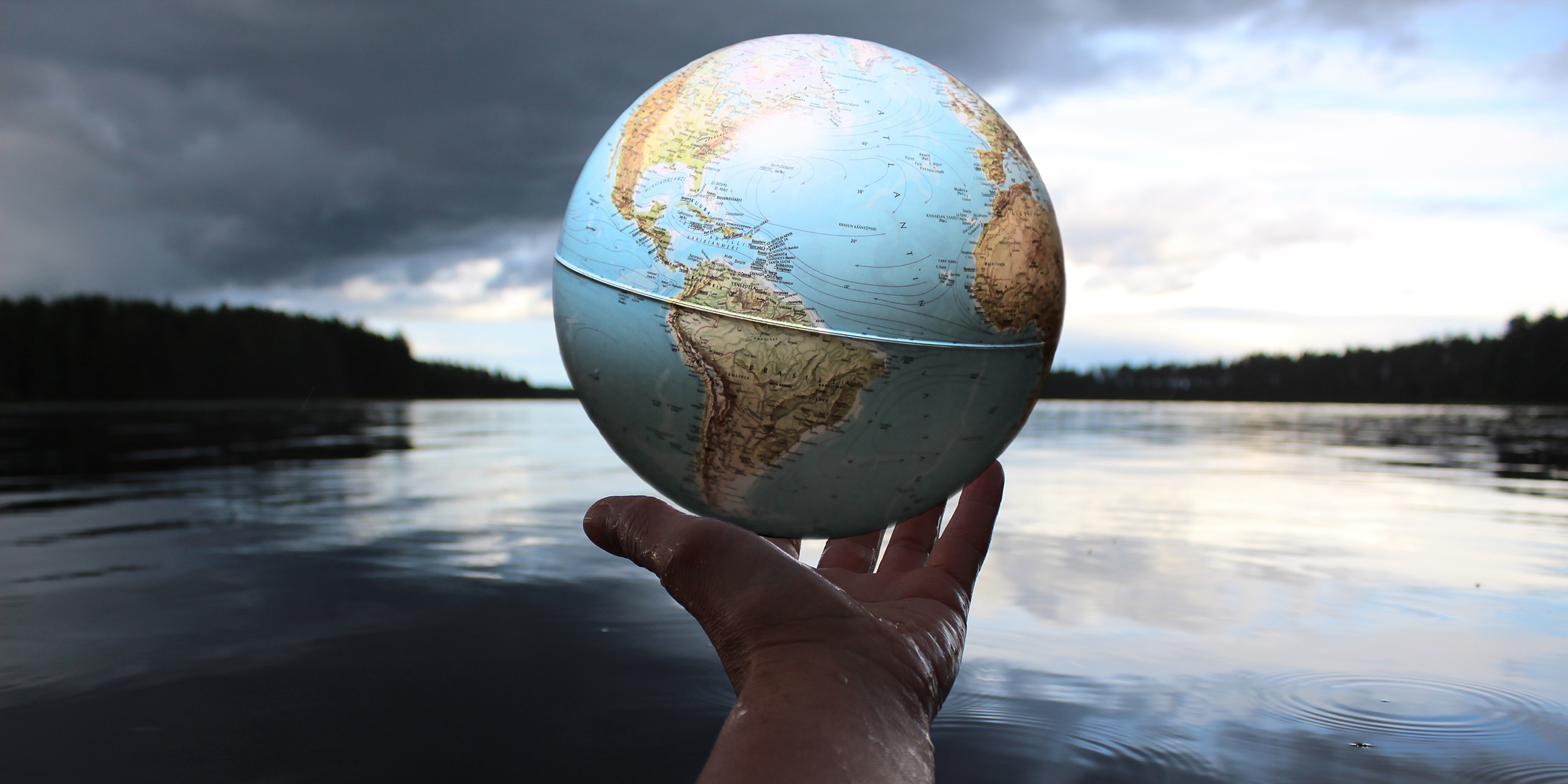Originally published 5 November 2002
Let’s talk about the topic that will define the 21st century.
Let’s talk about globalization.
Many people had not even heard the word “globalization” until the December 1999 meeting of the World Trade Organization in Seattle. At that meeting, a rag-tag coalition of environmentalists, labor unionists, anarchists, and “yuppies looking for their 1960s fix” (in journalist Thomas Friedman’s phrase) succeeded in disrupting the negotiations of presidents and prime ministers.
Most observers now agree that the protests had the effect of making big-wig advocates of international free trade more aware of the ethical consequences of their actions.
Subsequent to Seattle, non-governmental organizations, from Greenpeace to Oxfam International, have forced the ethics of globalization squarely into the light of public scrutiny.
In his new book on globalization, One World, Princeton University ethicist Peter Singer takes the view that globalization is inevitable. It remains to be seen whether it will help the world’s poorest people, he says.
Singer lists four ways the world is becoming one.
First, we all share the same atmosphere, which is mixed globally by the winds. Polluters of the atmosphere may be local, but the effects of pollution — ozone depletion and greenhouse warming — are global.
Second, ready or not, we share a global economy.
Third, the nations of the world are building a system of international laws and courts to protect the environment and punish crimes against humanity.
And fourth, we are increasingly one global village, linked by cheap air travel, the Internet, and satellite television.
Singer lays out the ethical implications of each of these commonalities. His guiding principle is that globalization should diminish, rather than aggravate, present disparities of health, wealth, and education.
He also points out that the United States has been one of the most reluctant of developed nations to put global ethics before national self-interest.
“It has to be said,” he writes, “in cool but plain language, that in recent years the international effort to build a global community has been hampered by the repeated failure of the United States to play its part.”
Singer, however, like other commentators on globalization, pays little attention to science as a globalizing force.
Although the scientific way of knowing was nurtured primarily in the West, it has become, de facto, the human way of knowing. There is no such thing as American science or Chinese science, Buddhist science or Islamic science, capitalist science or socialist science.
Science is the one international human activity that makes no reference to race, nationality, politics, or creed.
Consider the sequencing of the genome of the Anopheles mosquito, the vector of the deadly disease malaria, reported in the October 4 [2002] issue of Science. Among the 123 joint authors of the paper are scientists associated with research institutes in Canada, China, France, Germany, Greece, Israel, Italy, Russia, Spain, Britain, and the United States.
Politicians of these nations may not see eye to eye, but the scientists get along swimmingly.
Most scientists are good world citizens. They recognize that we are all one human family, likely descended from a common African ancestor who lived only 150,000 years ago, the so-called mitochondrial Eve.
The big question: Can Eve’s 6 billion progeny learn to feel responsible for one another?
America responded with unprecedented generosity after the World Trade Center attack on September 11, 2001, contributing more than a billion dollars for the families of the victims. The people who died were mostly our neighbors and kin.
Two days after the disaster — and unrelated to it — UNICEF reported that 30,000 of the world’s poorest children under the age of 5 die each day from preventable causes, such as malnutrition, unsafe water, and the lack of basic health care. Our response to this vastly larger and continuing tragedy is less than generous.
The reason for the difference in our response to the two tragedies is partly genetic. Human evolutionary history predisposes us to bond most immediately with family and close kin, and feel less compassion for others.
But as Peter Singer suggests, it is time to develop a global ethic based on a broader sense of kinship than the innate tribalism that has governed our loyalties in the past.
Science, as a truly international human enterprise, can help show the way.
But even science has glaring insufficiencies as a globalizing force. Conspicuously absent among the authors reporting the mosquito genome are scientists affiliated with research institutes in sub-Saharan Africa, where most malaria deaths occur.
Scientists of the developed world should use their substantial influence to see that governments (and taxpayers) generously support scientific education and research in Africa and other developing regions.
Only when all peoples of the world share equally in the fruits of the scientific way of knowing will science shine as an example of globalization at its best.



